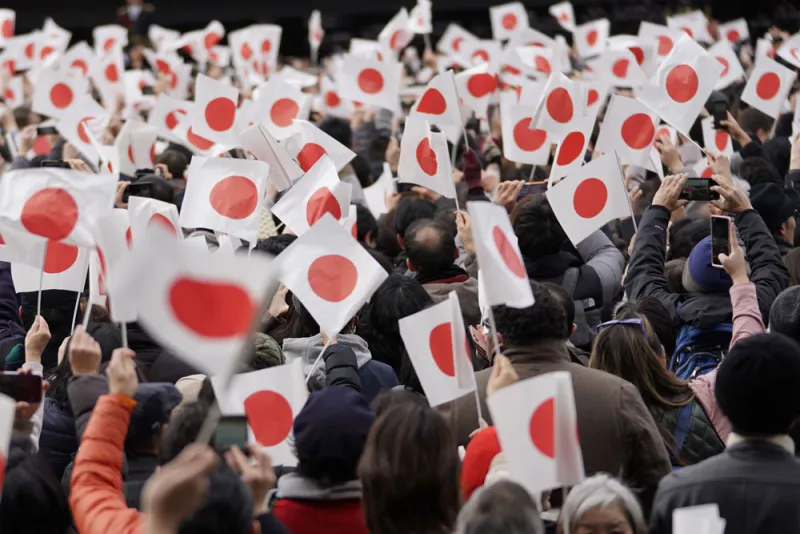Nomura once again ranks as Japan’s top equity research provider — but this year, it’s not alone. The incumbent shares the honor with another domestic firm: Daiwa Securities Group.
Together, the two Tokyo-based firms lead Institutional Investor’s 2020 All-Japan Research Team. More than 800 investment professionals across 365 firms voted in the 27th annual survey, rating research providers across 29 industry sectors and three macro disciplines. For the second year, the scores were weighted by how much respondents paid in Japanese equity commissions, in order to better reflect evolving research spending.
Daiwa — which placed fourth in last year’s commission-weighted ranking — improved significantly this year, racking up 28 total team positions to match Nomura. Mizuho Securities, which ranked second in 2019, came in third place this year with 25 team positions. Despite being bumped down the leaderboard, Mizuho once again earned the most first-team positions of any provider, ranking first in eight sectors. Daiwa and Nomura, meanwhile, were each awarded six first-team positions.
SMBC Nikko Securities slipped one rung to fourth place in the commission-weighted ranking, while Mitsubishi UFJ Morgan Stanley Co. rose from seventh place to round out the top five.
A separate leaderboard based on votes for individual analysts — as opposed to firms —reflected the same quintet of domestic providers, albeit in a somewhat different order. In this ranking, Daiwa took the No. 1 spot, followed by SMBC Nikko Securities in second, Nomura in third, and Mizuho Securities and Mitsubishi UF Morgan Stanley Co. in fourth and fifth, respectively.
Two additional leaderboards were produced by weighting responses by Japanese equity assets under management. These rankings were dominated by the same five firms, with Daiwa taking first in both.
All four of the leaderboards show investors doubling down on Japanese-based providers, with no international firms cracking the top five no matter how the results were weighted. The closest was JPMorgan Chase & Co., which placed sixth in all four rankings.
[II Deep Dive: These Are Japan’s Top Research Providers]
Investors may find the insight of local research firms more valuable than ever due to the overall sluggishness of the world’s third-largest economy, which had been slowing even before the novel coronavirus spread to the country in late February. By mid-March, confirmed infections had risen to 825 excluding the Diamond Princess cruise ship. The outbreak, which has reportedly killed 27 people, has shuttered schools and businesses and put the summer 2020 Tokyo Olympics into question.
“Based on economic indicators and other trends, it appears considerably likely that Japan has been in a gentle recession phase” since between October and December of 2018, according to Hidekatsu Watanabe, head of equity research at Mizuho Securities. “The Japanese government had not revised its basic assessment of the economy up until now because no technical recession — i.e. two consecutive quarters of negative growth — had occurred, and because GDP was on a modest upward trend.”
Given the impact of Covid-19 — the disease caused by the coronavirus — Watanabe added that Japan “is increasingly likely to enter a technical recession” during the first quarter of this year.
However, he noted the Japanese economy has emerged from a temporary deflationary phase, adding that employment, on a macro scale, is favorable.
An emailed statement from Nomura’s equity research team reflected similar sentiments: “Despite the increasing likelihood of two consecutive quarters of negative [quarter-to-quarter] growth, a recession by standard international definition, we believe modest economic growth will continue thanks mainly to favorable employment and household income, robust capital expenditure by non-manufacturing industries as a labor-saving measure, and increased public works spending by the government.”
Nomura also pointed out that private consumption had declined 2.9 percent in the last quarter of 2019 after a new consumption tax was passed in October. “A significant decline in private consumption… may be a sign that Japanese consumers have reacted more negatively to the tax hike than rationally assumed from the actual impact on real purchasing power,” the firm said in the statement. “A further deterioration in consumer sentiment due to Covid-19 may delay the consumption recovery from the tax hike shock.”
Against this backdrop, Nomura’s research team said it is focusing on “quality” and “creative research initiatives” to maintain its competitive position in an industry where a declining fee pool is still a challenge.
At Mizuho, meanwhile, Watanabe acknowledged that his firm, in addition to focusing on fundamental analysis, is increasingly aware of the need to evolve and establish systems that better meet the needs of investors.
“In our opinion, major challenges include how the sell-side research industry can monetize and what kind of business opportunities the industry can create to achieve this goal in the face of industrywide issues such as the shift toward passive investing within the asset management world, the transition to MiFID II in Europe, and the declining position of Japanese equities within the global equity market,” he said.







